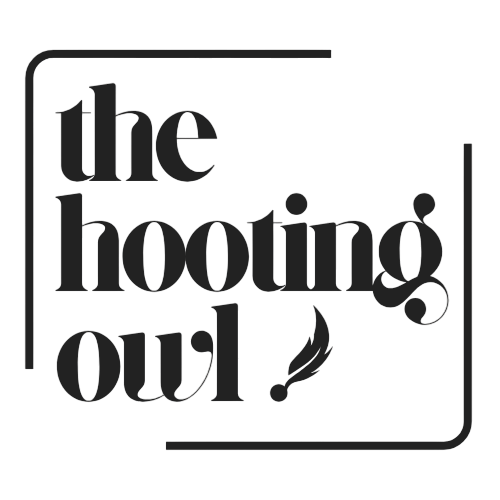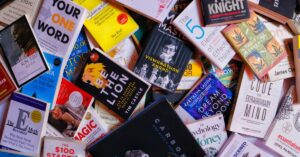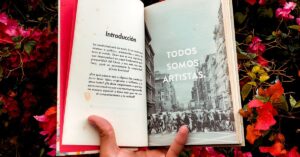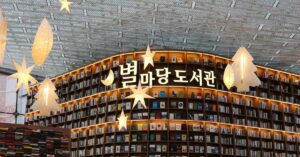Men Explain Things to Me by Rebecca Solnit
In her comic, scathing essay, “Men Explain Things to Me,” Rebecca Solnit took on what often goes wrong in conversations between men and women. She wrote about men who wrongly assume they know things and wrongly assume women don’t, about why this arises, and how this aspect of the gender wars works, airing some of her own hilariously awful encounters.
This updated edition with two new essays of this national bestseller book features that now-classic essay as well as “#YesAllWomen,” an essay written in response to 2014 Isla Vista killings and the grassroots movement that arose with it to end violence against women and misogyny, and the essay “Cassandra Syndrome.”
Girlhood by Melissa Febos
When her body began to change at eleven years old, Febos understood immediately that her meaning to other people had changed with it. By her teens, she defined herself based on these perceptions and by the romantic relationships she threw herself into headlong. Over time, Febos increasingly questioned the stories she’d been told about herself and the habits and defenses she’d developed over years of trying to meet others’ expectations. The values she and so many other women had learned in girlhood did not prioritize their personal safety, happiness, or freedom, and she set out to reframe those values and beliefs.
Blending investigative reporting, memoir, and scholarship, Febos charts how she and others like her have reimagined relationships and made room for the anger, grief, power, and pleasure women have long been taught to deny. Written with Febos’ characteristic precision, lyricism, and insight, Girlhood is a philosophical treatise, an anthem for women, and a searing study of the transitions into and away from girlhood, toward a chosen self.
We Should All Be Feminists by Chimamanda Ngozi Adichie
In this personal, eloquently-argued essay—adapted from the much-admired TEDx talk of the same name—Chimamanda Ngozi Adichie offers readers a unique definition of feminism for the twenty-first century. Drawing extensively on her own experiences and her deep understanding of the often masked realities of sexual politics, here is one remarkable author’s exploration of what it means to be a woman now—and an of-the-moment rallying cry for why we should all be feminists.
Feminism Is For Everybody by Bell Hooks
What is feminism? In this short, accessible primer, bell hooks explores the nature of feminism and its positive promise to eliminate sexism, sexist exploitation, and oppression. With her characteristic clarity and directness, hooks encourages readers to see how feminism can touch and change their lives―to see that feminism is for everybody.
Jokes to Offend Men by Allison Kelley, Danielle Kraese, Kate Herzlin and Ysabel Yates
A man walks into a bar. It’s a low one, so he gets a promotion within his first six months on the job.
Four comedy writers transform classic joke setups into sharp commentary about the everyday and structural sexism that pervades all facets of life. Jokes to Offend Men arms readers with humorous quips to shut down workplace underminers, condescending uncles, and dismissive doctors, or to share with their exhausted friends at the end of a long day. A cutting, cathartic spin on the old-fashioned joke book, Jokes to Offend Men is a refreshing reclamation of a tired form for anyone who’s ever been told to “lighten up, it’s just a joke!”
Untamed by Glennon Doyle
There is a voice of longing inside each woman. We strive so mightily to be good: good partners, daughters, mothers, employees, and friends. We hope all this striving will make us feel alive. Instead, it leaves us feeling weary, stuck, overwhelmed, and underwhelmed. We look at our lives and wonder: Wasn’t it all supposed to be more beautiful than this? We quickly silence that question, telling ourselves to be grateful, hiding our discontent—even from ourselves.
For many years, Glennon Doyle denied her own discontent. She had buried her voice beneath decades of numbing addictions, cultural conditioning, and institutional allegiances. She decided to quit abandoning herself and to instead abandon the world’s expectations of her. She quit being good so she could be free. She quit pleasing and started living.
Soulful and uproarious, forceful and tender, Untamed is both an intimate memoir and a galvanizing wake-up call. It is the story of how one woman learned that a responsible mother is not one who slowly dies for her children, but one who shows them how to fully live. It is the story of navigating divorce, forming a new blended family, and discovering that the brokenness or wholeness of a family depends not on its structure but on each member’s ability to bring their full self to the table. And it is the story of how each of us can begin to trust ourselves enough to set boundaries, make peace with our bodies, honor our anger and heartbreak, and unleash our truest, wildest instincts so that we become women who can finally look at ourselves and say: There She is.
Women Who Run With The Wolves by Clarissa Pinkola Estes
Within every woman there lives a powerful force, filled with good instincts, passionate creativity, and ageless knowing. She is the Wild Woman, who represents the instinctual nature of women. But she is an endangered species. For though the gifts of wildish nature belong to us at birth, society’s attempt to “civilize” us into rigid roles has muffled the deep, life-giving messages of our own souls.
In Women Who Run with the Wolves, Dr. Clarissa Pinkola Estés unfolds rich intercultural myths, fairy tales, folk tales, and stories, many from her own traditions, in order to help women reconnect with the fierce, healthy, visionary attributes of this instinctual nature. Through the stories and commentaries in this remarkable book, we retrieve, examine, love, and understand the Wild Woman, and hold her against our deep psyches as one who is both magic and medicine.
Dr. Estés has created a new lexicon for describing the female psyche. Fertile and life-giving, it is a psychology of women in the truest sense, a knowing of the soul.
Women and Other Monsters: Building a New Mythology by Jess Zimmerman
The folklore that has shaped our dominant culture teems with frightening female creatures. In our language, in our stories (many written by men), we underline the idea that women who step out of bounds—who are angry or greedy or ambitious, who are overtly sexual or not sexy enough—aren’t just outside the norm. They’re unnatural. Monstrous. But maybe, the traits we’ve been told make us dangerous and undesirable are actually our greatest strengths.
Through fresh analysis of 11 female monsters, including Medusa, the Harpies, the Furies, and the Sphinx, Jess Zimmerman takes us on an illuminating feminist journey through mythology. She guides women (and others) to reexamine their relationships with traits like hunger, anger, ugliness, and ambition, teaching readers to embrace a new image of the female hero: one that looks a lot like a monster, with the agency and power to match.
Often, women try to avoid the feeling of monstrousness, of being grotesquely alien, by tamping down those qualities that we’re told fall outside the bounds of natural femininity. But monsters also get to do what other female characters—damsels, love interests, and even most heroines—do not. Monsters get to be complete, unrestrained, and larger than life. Today, women are becoming increasingly aware of the ways rules and socially constructed expectations have diminished us. After seeing where compliance gets us—harassed, shut out, and ruled by predators—women have never been more ready to become repellent, fearsome, and ravenous.
*As an Amazon Associate I earn from qualifying purchases. This comes at no extra cost to you.















